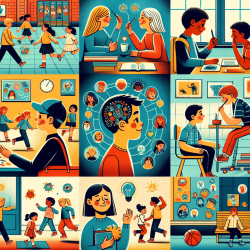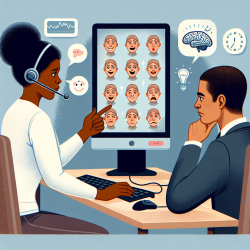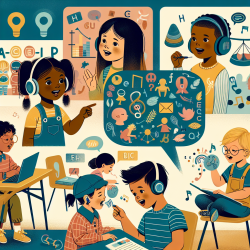Understanding Social Engagement and Loneliness in Autistic Children
In the realm of speech-language pathology, understanding the nuances of social engagement and loneliness in autistic children is pivotal. Recent research titled Social Engagement and Loneliness in School-age Autistic Girls and Boys sheds light on this intricate relationship, offering valuable insights for practitioners aiming to enhance their therapeutic strategies.
Key Findings from the Research
The study highlights a significant relationship between joint engagement and loneliness among autistic students. Surprisingly, the research found that autistic students reported more loneliness when they were mutually engaged with social groups compared to when they were isolated. This was particularly evident in elementary-age girls and secondary-age boys.
Interestingly, the study also found that boys in close proximity to peers felt less lonely than those who were mutually engaged. This suggests that being near peers, even without active participation, can mitigate feelings of loneliness.
Gender and Age Differences
The research underscores the influence of gender and age on social engagement and loneliness. Elementary-age girls and secondary-age boys showed more joint engagement but also reported increased loneliness. In contrast, secondary-age girls and elementary-age boys were more likely to be solitary and less engaged with peer groups.
Implications for Practitioners
These findings highlight the need for tailored interventions that leverage existing social strengths while addressing specific challenges. Practitioners should consider the following strategies:
- Leverage Strengths: Focus on the natural ability of elementary-age girls to enter social groups, while supporting their ability to sustain engagement.
- Proximity Interventions: Encourage activities that allow boys to be near peers without the pressure of active participation, reducing cognitive and social stress.
- Gender-Specific Support: Develop interventions that address the unique social dynamics and challenges faced by autistic girls and boys.
Encouraging Further Research
While this study provides valuable insights, further research is needed to explore the long-term effects of social engagement on loneliness and mental health outcomes. Practitioners are encouraged to delve deeper into these findings and consider how they can be applied in their therapeutic practices.
To read the original research paper, please follow this link: Social engagement and loneliness in school-age autistic girls and boys.










